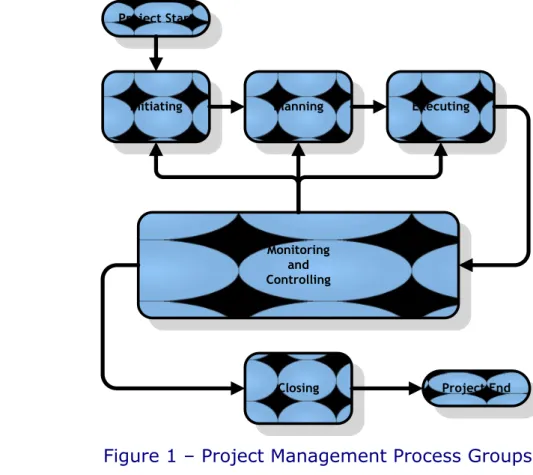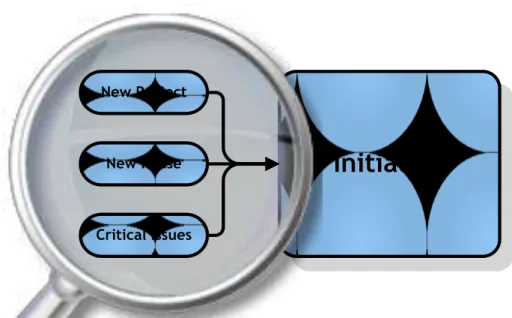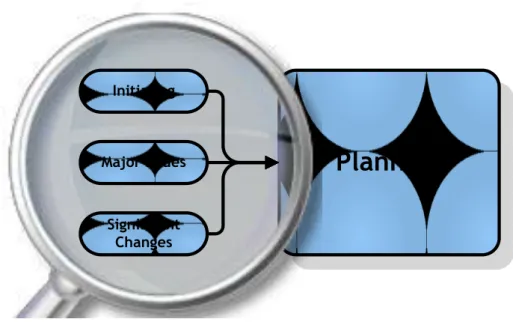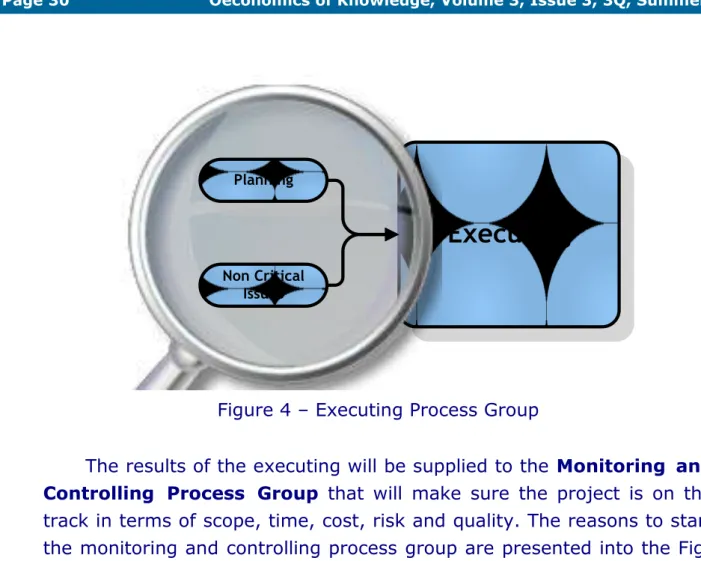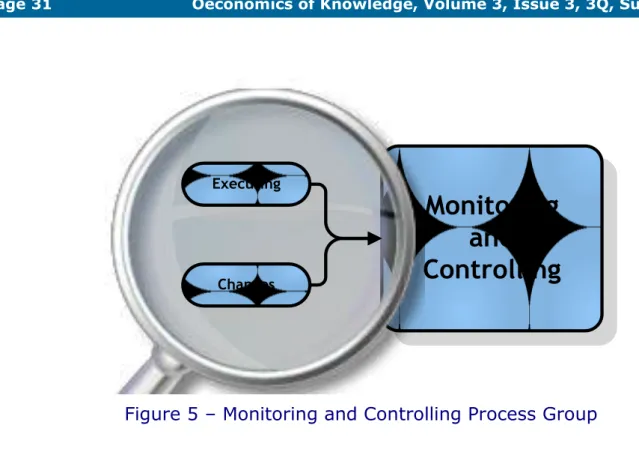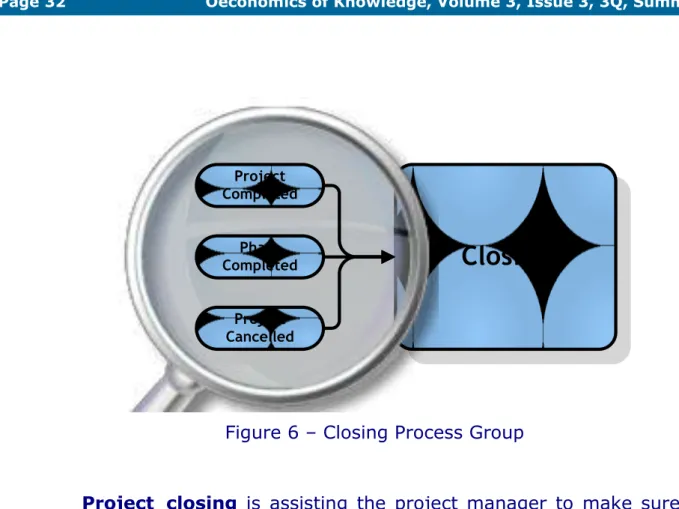Managing Software Development Projects,
The Project Management Process
Felician ALECU, PhD, University Lecturer
Department of Economic Informatics
Academy of Economic Studies, Bucharest, Romania
E-mail: alecu[at]ase[dot]ro; Web Page: http://alecu.ase.ro
Abstract: Software development projects are logically divided into phases that are composing the project life cycle. The name and number of these phases are industry dependent, so they are completely different from one field of activity to another. Typically, the phases are scheduled sequentially but in some cases a project may take clear advantages by running the phases concurrently.
Keywords: project life cycle, project management methodology, project management process.
The Project Management Process
According to PMI (Project Management Institute), the publisher of
PMBOK Guide (A Guide to the Project Management Body of Knowledge), a project is a temporary endeavor undertaken to create a unique product, service or result.
aged, planned and controlled.
The life cycle is usually applied together with a project management methodology/process which includes, from a PMI’s point of view, the five Project Management Process Groups – Initiating, Planning, Executing,
Monitoring and Controlling, Closing, as detailed into Figure 1. The Project
Management Process Groups are industry independent and totally
differ-ent than the project phases.
A project usually starts with the Initiating Process Group where it is decided if the project will be selected and accepted based on high-level planning efforts performed at this stage. Small projects are using a single set of project management process groups, while large projects are im-plementing one set of process groups for each phase.
Figure 1 – Project Management Process Groups Project Start
Monitoring and Controlling
The initiating process can happen by one of the following reasons (Figure 2):
a new project just started
a new phase is about to begin
there are critical issues that demand the project to be com-pletely reevaluated
Figure 2 – Initiating Process Group
If the project is approved, it will move forward to the Planning Process Group, so detailed Project Management Plans are prepared. The planning process group occurs in one of the following situations (Figure 3):
initiating process group is completed
there are major issues that need the project to be replanned
Initiating
New Project
New Phase
significant modifications that are affecting the initial plans
Figure 3 – Planning Process Group
The Executing Process Group will follow right after, so the work will be completed according to the plans. Executing can be started by one of the following reasons (Figure 4):
planning process group finished
there are non critical issues that do not need replanning
Planning
Initiating
Major Issues
Figure 4 – Executing Process Group
The results of the executing will be supplied to the Monitoring and Controlling Process Group that will make sure the project is on the track in terms of scope, time, cost, risk and quality. The reasons to start the monitoring and controlling process group are presented into the Fig-ure 5:
executing process group just finished
approved changes arrived – corrective/preventive actions or defect fixing
Executing
Planning
Figure 5 – Monitoring and Controlling Process Group
In the case when variations to the plan are encountered, depending on the severity of the identified issues the project will return back to one of the following process groups (Figure 1):
Initiating – when the issues are critical so a decision point is needed in order to find out if the project would continue or not
Planning – if major issues are discovered or significant changes are approved
Executing – when there are no baselines affected by the
changes
A project can enter into the Closing project group in one of the fol-lowing situations (Figure 6):
project or phase is complete
project is cancelled before the work is finished
Monitoring
and
Controlling
Executing
Figure 6 – Closing Process Group
Project closing is assisting the project manager to make sure all the work is completed according to the plans and the project met the ob-jectives stated into the charter and project management plans.
Conclusions
As stated at the beginning of this paper, any project can be logically divided into several phases that can be better managed, planned and controlled. Typically, these phases are scheduled sequentially but in some cases a project may take clear advantages by running the phases concurrently.
Closing
Project Completed
Phase Completed
References
[1] Frank F. Tsui, Orlando Karam, Essentials of Software Engineer-ing, Second Edition, Jones & Bartlett Publishers, 2009
[2] Project Management Institute, A Guide to the Project Manage-ment Body of Knowledge: PMBOK Guide, 4th edition, Project Management Institute, 2008
[3] Project Management Institute, Practice Standard for Earned Value Management, Project Management Institute, 2005
